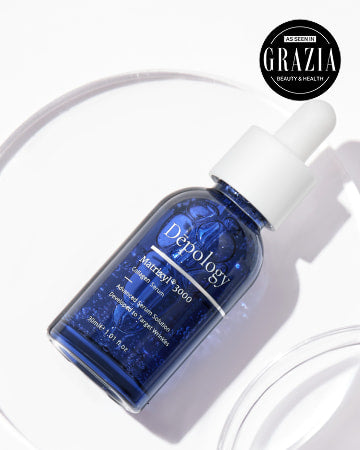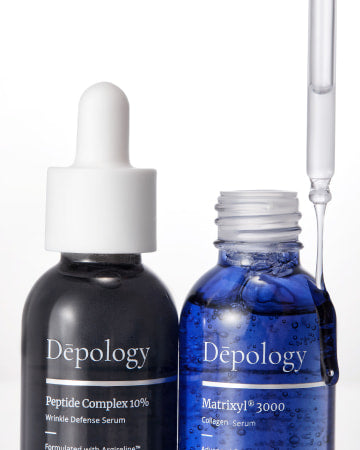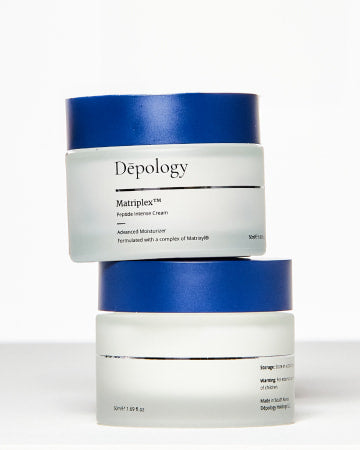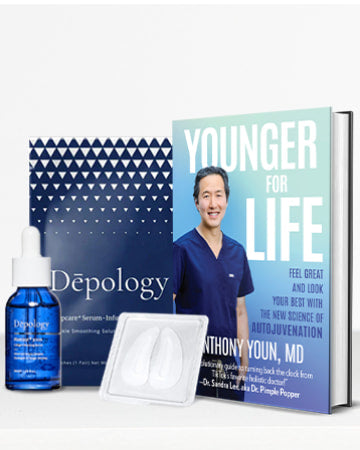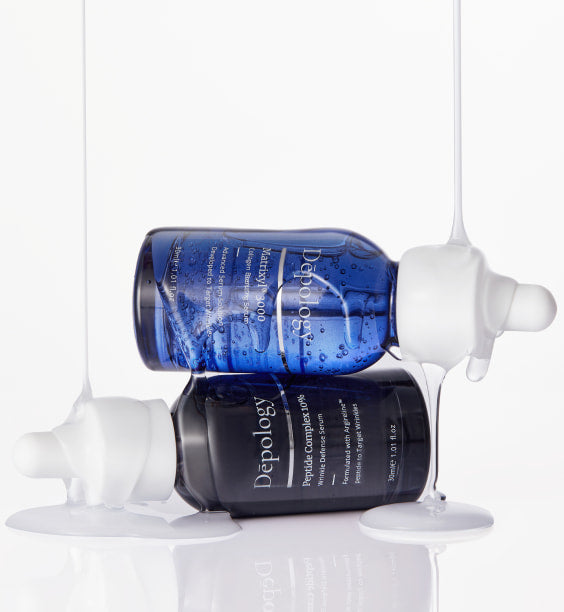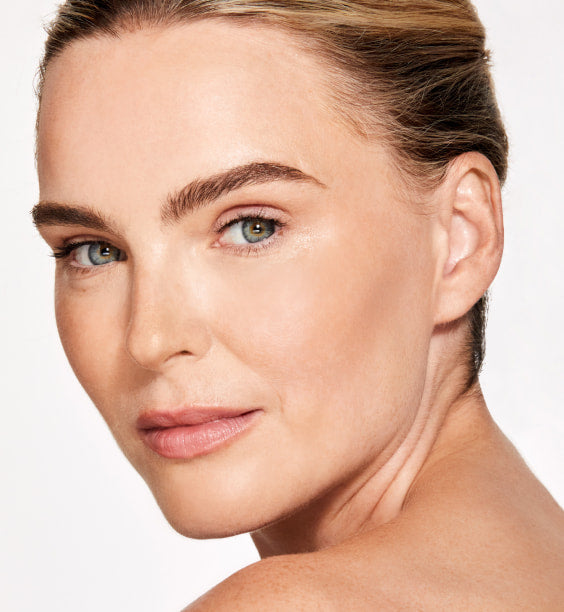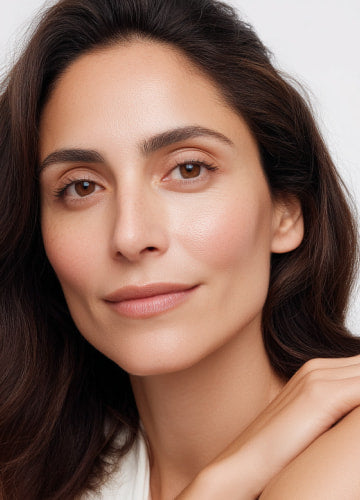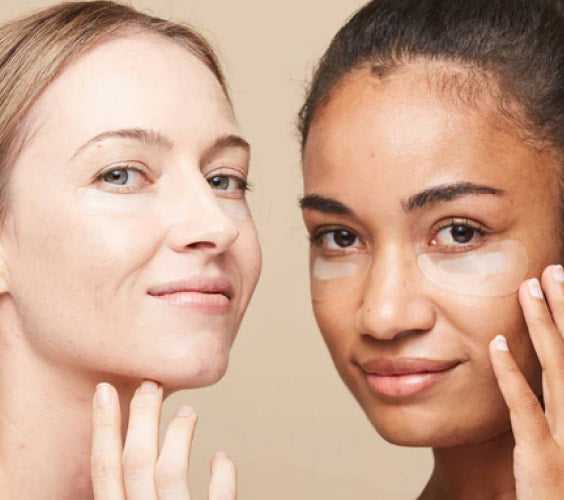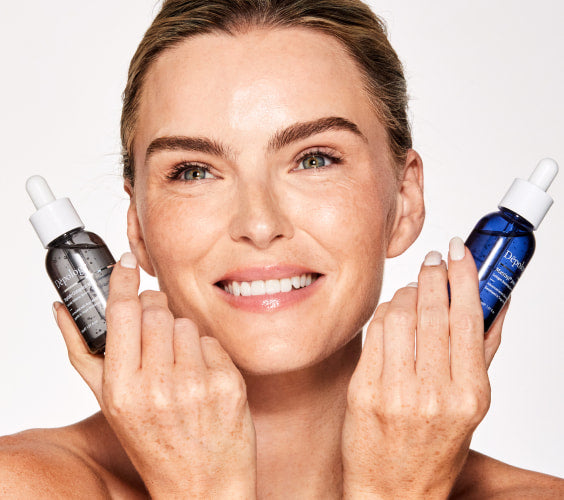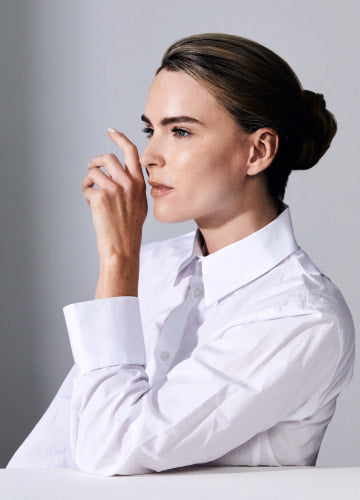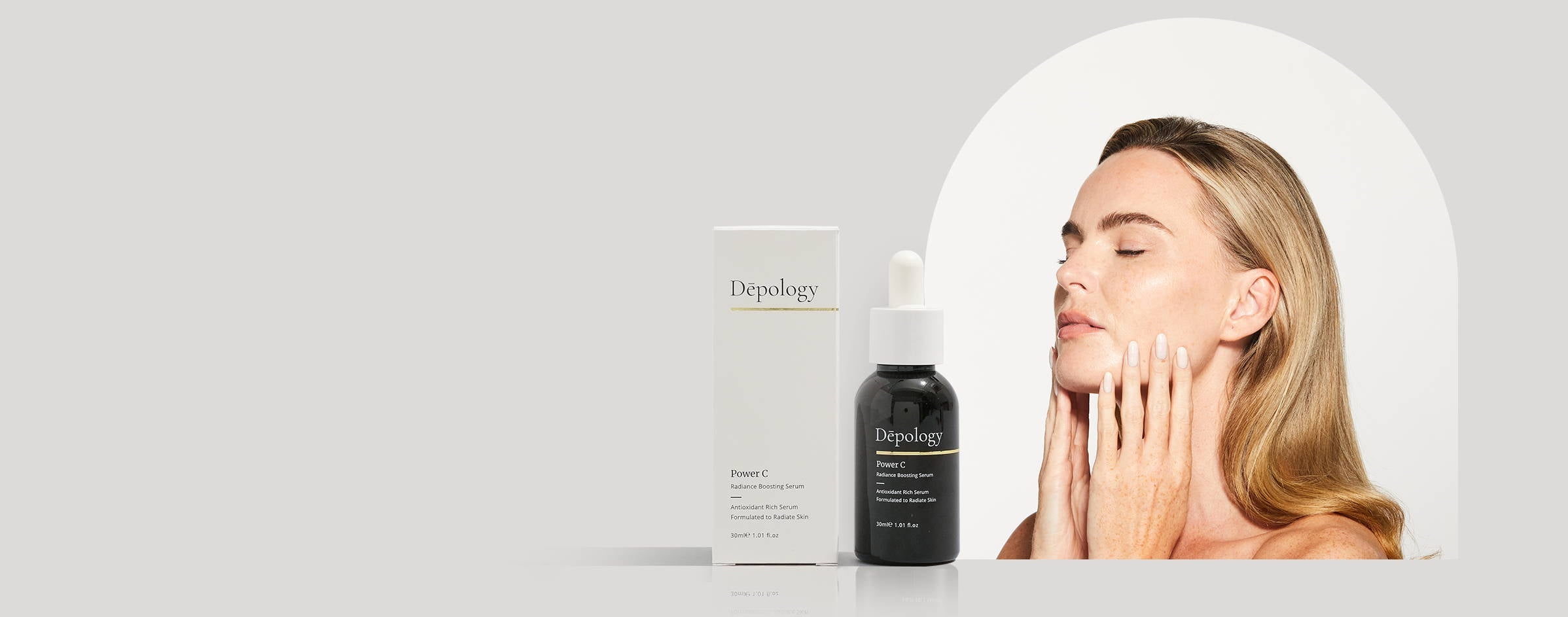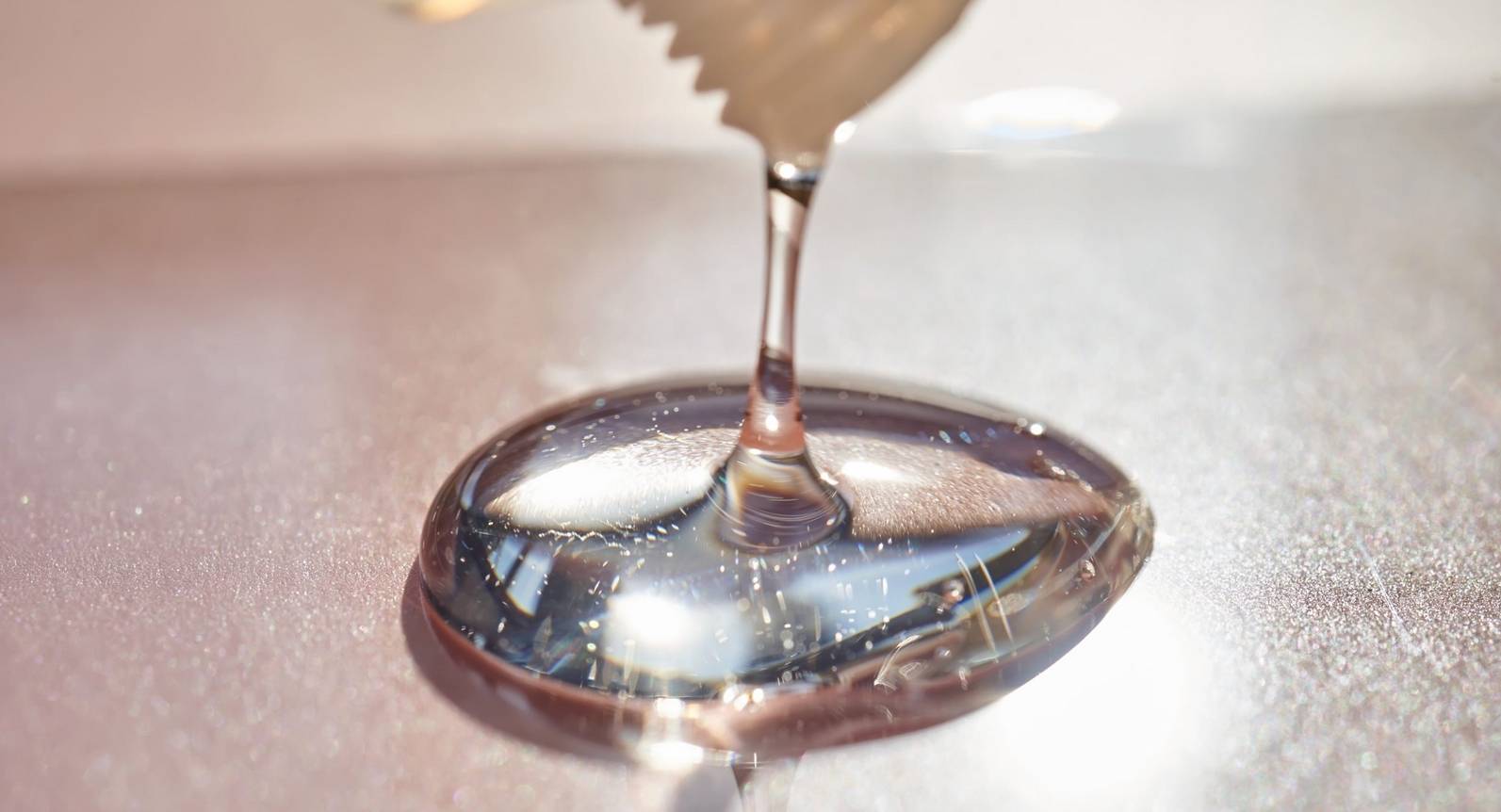
SPF 30 vs 50: Which Sunscreen Should I Use?
Sunscreen is an essential component of our skincare routines, serving as a vital shield against the sun's harmful ultraviolet (UV) rays. Yet, in the world of sun protection, the choice between SPF 30 and SPF 50 can often leave us wondering: what's the real difference, and which one should we reach for?
Whether you're gearing up for a day at the beach or just want everyday sun defense, Dēpology is here to help you make an informed decision for your needs.
What does SPF 30 vs. 50 mean?
SPF, which stands for "Sun Protection Factor," is a measure of how effective a sunscreen or sunblock product is at protecting your skin from the harmful effects of the sun's UV radiation. SPF is usually accompanied by a number, such as SPF 30 or SPF 50, which indicates the level of protection the product offers.
SPF 30 implies that the sunscreen is designed to block about 97% of UVB (ultraviolet B) rays, which are responsible for causing sunburn. In practical terms, it provides good protection for everyday activities and moderate sun exposure.
SPF 50, on the other hand, offers slightly higher protection, blocking about 98% of UVB rays. It is often recommended for prolonged outdoor activities or for individuals with sensitive skin.
While both SPF 30 and SPF 50 offer effective protection, no sunscreen can provide 100% protection from UV rays. The key is to apply sunscreen generously and regularly, as well as to follow other sun safety measures such as seeking shade and avoiding sun exposure during peak hours (usually from 10 a.m. to 4 p.m.).
Additionally, SPF primarily measures protection against UVB rays, which cause sunburn. You should also protect your skin from UVA rays, which can lead to premature aging and contribute to skin cancer. Look for broad-spectrum sunscreens that offer protection against both UVA and UVB rays for comprehensive sun protection.
What level of SPF should I use?
The level of SPF you should use depends on various factors, including your skin type, planned activities, and your sensitivity to the sun. Here are some general guidelines to help you choose an appropriate SPF level:
SPF 15-30: These SPF levels are suitable for everyday use when you have limited sun exposure, such as going to work or running errands. They provide good protection from incidental sun exposure but are not always sufficient for extended outdoor activities.
SPF 30-50: WhileSPF 30 is a common choice for daily use, SPF 50 is recommended for individuals spending extended periods outdoors and is a good choice for activities like hiking, beach excursions, or outdoor sports.
SPF 50+: Some sunscreens are labeled as SPF 50+ to indicate higher protection. These are suitable for individuals who are extremely sensitive to the sun or for situations with intense sun exposure, such as high-altitude activities, extended work outdoors, or tropical vacations.
What are some things to consider when using sunscreen?
Skin Type: People with sensitive skin or a history of skin cancer may benefit from using a higher SPF, such as SPF 50+. Those with darker skin may find SPF 30 or 50 sufficient for most situations.
Seek Shade and Use Protective Clothing: Sunscreen is just one part of sun protection. Whenever possible, seek shade, wear protective clothing like wide-brimmed hats and long-sleeved shirts, and use sunglasses to protect your eyes from UV radiation.
Individual Needs: If you have specific skin conditions, allergies, or are using medications that increase sun sensitivity, consult with a dermatologist for personalized sunscreen recommendations.
Ultimately, the choice of SPF level should align with your personal needs and activities. Remember that consistent and proper sunscreen application is more important than the exact SPF level, so be diligent about sun protection to reduce your risk of sunburn and skin damage.
What SPF sunscreen do I need for the face?
When choosing an SPF sunscreen for your face, you should consider factors like your skin type and sensitivity to the sun. Here are some general recommendations for selecting an SPF sunscreen for your face:
SPF 30 or Higher: For everyday use, an SPF 30 sunscreen is a good starting point. This level of protection is suitable for daily activities and helps shield your skin from the sun's harmful UV rays. If you spend extended time outdoors or have increased skin sensitivity, consider using an SPF 50 sunscreen on your face.
Broad-Spectrum Protection: Look for a sunscreen that offers broad-spectrum protection, which means it guards against UVA and UVB rays. UVA rays can cause premature aging and skin damage, while UVB rays are more prone to cause sunburn.
Water-Resistant: If you anticipate sweating or being in contact with water, choose a water-resistant sunscreen. These formulas are more likely to stay on your skin, providing better protection during activities like swimming or exercise.
Non-Comedogenic: To prevent clogged pores and breakouts, opt for a sunscreen labeled as non-comedogenic, especially if you have acne-prone or oily skin.
Sensitive Skin: Select a sunscreen formulated for sensitive skin or has minimal added fragrances and ingredients that may irritate your skin.
Daily Use: Make sunscreen a part of your daily skincare routine, even on cloudy days or when you'll be indoors. UV rays can penetrate through windows, so you can still be exposed to sun damage while indoors.
Reapplication: Remember to reapply sunscreen every two hours or more frequently if you're sweating or wiping your face and spending extended hours outside. Consider using a sunscreen powder, setting spray, or moisturizing stick for easy touch-ups during the day.
CTA: Moisturizing Caviar Multi-Balm Stick
Makeup-Friendly Options: Some sunscreens are specifically designed to be worn under makeup, offering a smooth and non-greasy finish. Look for products labeled as "sunscreen primer" or "makeup-friendly sunscreen" if you wear makeup regularly. Sunscreen should always be applied before make-up in a routine.
Ultimately, the best SPF sunscreen for your face is one that aligns with your specific needs and skin type. If you're unsure about which product to choose, consider consulting with a professional who can provide personalized recommendations based on your skin's unique characteristics and any specific concerns you may have.
Does the texture of sunscreen affect the SPF level?
The texture of sunscreen does not directly affect the SPF level. SPF is primarily determined by the active ingredients in the sunscreen and their concentration. These active ingredients work to absorb, reflect, or scatter the harmful UV radiation from the sun, protecting the skin from its damaging effects.
While the texture of sunscreen doesn't directly impact its SPF level, it can affect how well it is applied, reapplied, and tolerated. The key to effective sun protection is to choose a sunscreen with the appropriate SPF rating for your needs. Make sure to apply it generously and evenly, and reapply it as necessary to maintain protection during sun exposure.
SPF 30 vs. 50 for tanning purposes?
Using sunscreen with a high SPF, such as SPF 50, is not intended for tanning. A high-SPF sunscreen is designed to provide strong protection against the sun's UV rays and can significantly reduce the tanning effect.
Sunscreen with SPF 30 provides good protection against UVB rays, which are responsible for causing sunburn. It allows some UVB rays to penetrate the skin, which can result in a gradual tan over time. However, it's important to note that even with SPF 30, you can still tan, but the process will be slower, and the risk of sunburn is reduced compared to not using sunscreen at all.
SPF 50 sunscreen formulas block a greater percentage of UVB rays. This means that the tanning effect will be even slower compared to SPF 30. SPF 50 is recommended for individuals who want to minimize tanning effects.
Intentional tanning, especially through sun exposure, is not generally recommended by dermatologists due to the risks associated with UV radiation. Excessive UV exposure can lead to skin damage, premature aging, and an increased risk of skin cancer. If you want a tan appearance, consider safer alternatives such as self-tanning lotions, sprays, or bronzers. These products can provide a tan look without the harmful effects of UV radiation.
Conclusion
The choice between SPF 30 and SPF 50 ultimately depends on your unique skin type, sun sensitivity, and the level of sun exposure you anticipate. While both offer protection against the sun's harmful UV rays, SPF 30 is a reliable choice for everyday activities, providing a balance between a barrier and the potential for a gradual tan. On the other hand, SPF 50 offers heightened protection, making it a wise choice for those with sensitive skin and those seeking to minimize tanning effects.
Whichever you choose, the most crucial aspect of sun care is consistent and proper application, regardless of the SPF level. Don't forget to pair sunscreen with other sun-safe practices. These include wearing protective sunglasses, clothing, seeking shade outdoors, and avoiding excessive sun exposure, which will keep your skin healthy and radiant for years.

